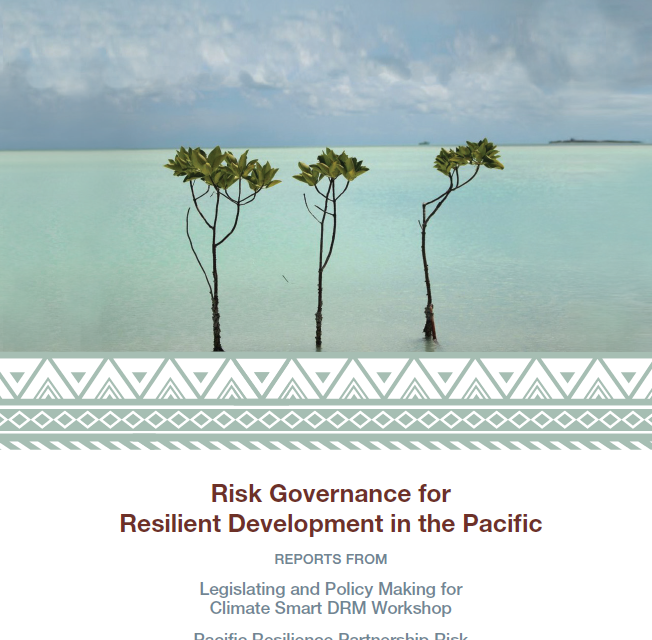
Every year, tens of thousands of people across the region are pushed into poverty as a result of the impact of disasters and climate change. Better understanding and stronger governance, including law, policies and systems, for disaster and climate risk is the foundation of resilient and sustainable development.
In this regard, Pacific small island states have led the world by adopting regional governance arrangements to strengthen risk-informed approach to national development, through the Framework for Resilient Development in the Pacific and more recently the Boe Declaration. Initially in terms of policy, and now increasingly in terms of legislation, Pacific small island states are looking at how to better integrate their approach to disaster and climate risk management to ensure more resilient development.
To further this objective, a series of workshops and meetings were held for Pacific policy makers, disaster risk management practitioners including Red Cross, and development partners in October 2019. Key activities included the Pacific Resilience Partnership hosted workshop “legislating and policy making for climate smart DRM”, a pre youth forum and the first Pacific Resilience Partnership Technical Working Group on Risk Governance for Resilient Development was held.
Full report of the meetings, including outcomes can be found here.